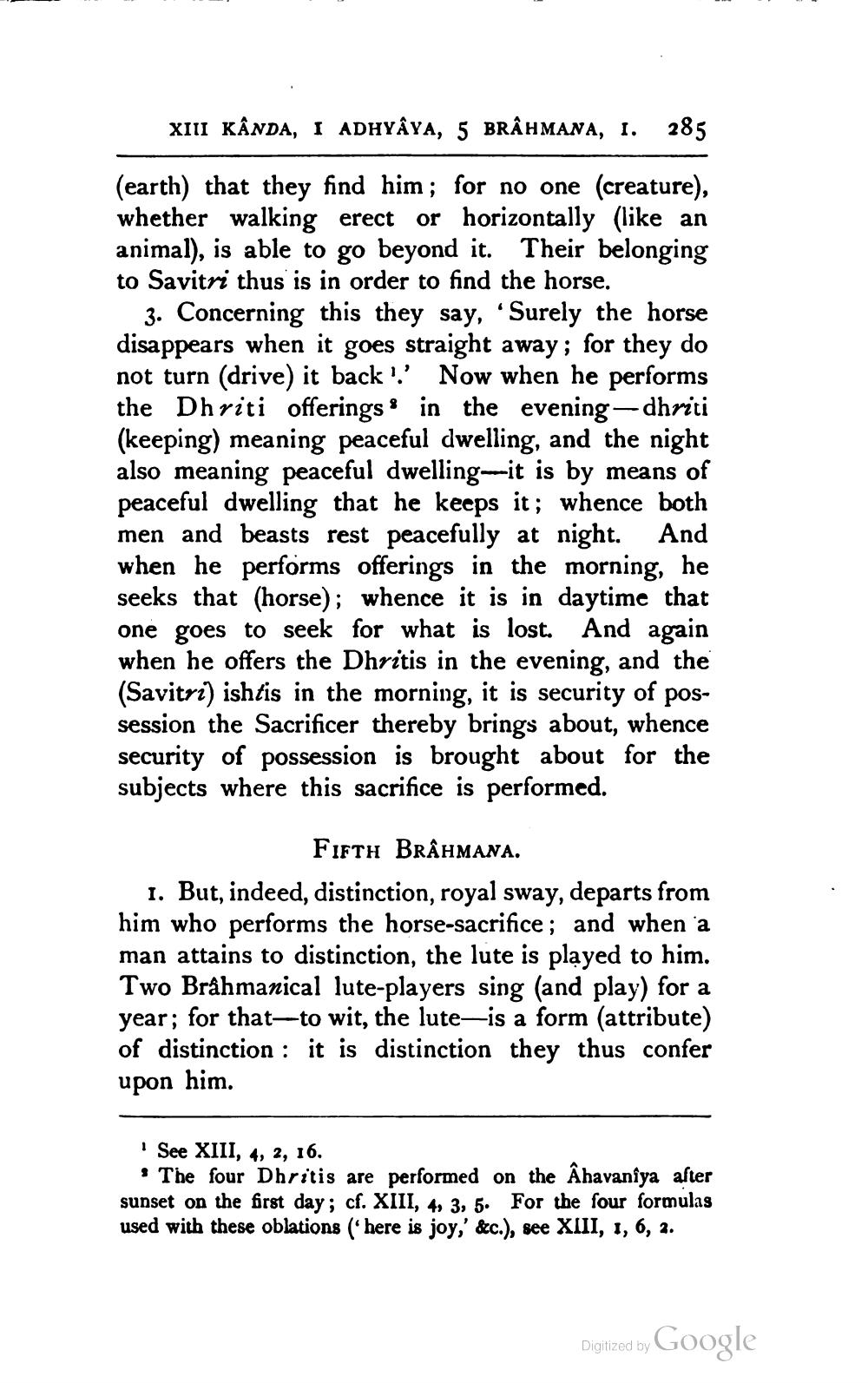________________
XIII KÂNDA, I ADHYÂYA, 5 BRÂHMANA, 1. 285
(earth) that they find him; for no one (creature), whether walking erector horizontally (like an animal), is able to go beyond it. Their belonging to Savitri thus is in order to find the horse.
3. Concerning this they say, 'Surely the horse disappears when it goes straight away; for they do not turn (drive) it back!' Now when he performs the Dhriti offerings in the evening-dhriti (keeping) meaning peaceful dwelling, and the night also meaning peaceful dwelling it is by means of peaceful dwelling that he keeps it; whence both men and beasts rest peacefully at night. And when he performs offerings in the morning, he seeks that (horse); whence it is in daytime that one goes to seek for what is lost. And again when he offers the Dhritis in the evening, and the (Savitri) ishtis in the morning, it is security of possession the Sacrificer thereby brings about, whence security of possession is brought about for the subjects where this sacrifice is performed.
Fifth BRÂHMANA. 1. But, indeed, distinction, royal sway, departs from him who performs the horse-sacrifice; and when a man attains to distinction, the lute is played to him. Two Brahmanical lute-players sing (and play) for a year; for that to wit, the lute—is a form (attribute) of distinction : it is distinction they thus confer upon him.
" See XIII, 4, 2, 16.
· The four Dhritis are performed on the Ahavaniya after sunset on the first day; cf. XIII, 4, 3, 5. For the four formulas used with these oblations ('here is joy,' &c.), see XIII, 1, 6, 2.
Digitized by Google




